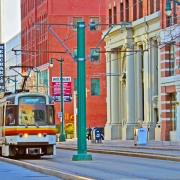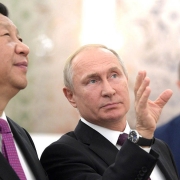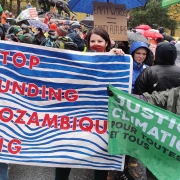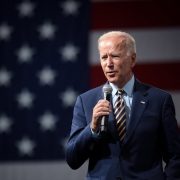The Reparations Trap
For today’s progressive left and its corporate backers, the past increasingly determines the future. At home and abroad, they seek to remedy historical guilt. So, in recent months, progressive elites have embraced affirmative action and reparations for anyone whose ancestors have ever been poorly treated by those dastardly people of European descent.
America’s regime of preferential treatment for particular racial groups is deeply entrenched in its political class. Yet a fight is brewing. Next spring, the US Supreme Court is expected to rule that race-based admissions policies at universities like Harvard and the University of North Carolina are unconstitutional. This ruling could have far-reaching ramifications in education and beyond.
The use of policy to address past wrongs was also a theme at the recent COP27 climate summit. Rather than seeking to modernise developing countries, global grandees have opted for what they call ‘climate justice’ – that is, the idea that industrialised countries’ carbon emissions to date are a historical injustice for which they must now repent. Accordingly, the billionaires of Silicon Valley, London and Wall Street, as well as born-again eco-zealots like President Biden, hope to pave the political way to a CO2-free utopia by paying ‘climate reparations’ to the Global South.
Biden’s embrace of so-called climate justice on the international stage parallels his embrace of racial equity at home, in which preferential treatment is dished out specifically to black people, from mortgage holders and farmers to those needing vaccinations. To this end, Biden has even changed the Democratic primary system, putting the presidential nomination to the overwhelmingly black South Carolina caucus first. This move gives huge influence over the presidential candidate to voters in a state that reliably votes Republican in virtually every state and national election.
Affirmative action, racial preferences and other guilt-driven approaches, despite enjoying such wide acceptance in the political class, have had little noteworthy success to date. Billions of dollars in aid have been handed out to Africa over the years, but this has done little to help its economic development. In the coming recession, Africa’s situation is likely to get even worse. Instead, more progress has been made by countries, notably in East Asia, which have relied instead on capital imports, savings, trade and self-reliance to boost their economies.
America’s commitment to wage a ‘war on poverty’ has also been less than effective. In the 50 years since it began in 1964, over $20 trillion has been spent on welfare programmes. Yet, in 2020, the ratio of incomes between blacks and whites is the same as it was in 1968. Nor has the black middle class expanded beyond its stunning postwar gains. Despite decades of affirmative action, the percentage of blacks in elite colleges has fallen, reflecting in part the utter failure of many school systems in large cities. And black poverty, largely concentrated among families without fathers, has not decreased in recent decades. One in five black Americans is now experiencing a third generation in poverty, compared to only one in 100 whites.
Read the rest of this piece at Spiked.
Joel Kotkin is the author of The Coming of Neo-Feudalism: A Warning to the Global Middle Class. He is the Roger Hobbs Presidential Fellow in Urban Futures at Chapman University and Executive Director for Urban Reform Institute. Learn more at joelkotkin.com and follow him on Twitter @joelkotkin.
Homepage photo: Max Chiswick via Wikimedia under CC 4.0 License.





 Gage Skidmore, used here under CC 2.0 License
Gage Skidmore, used here under CC 2.0 License


